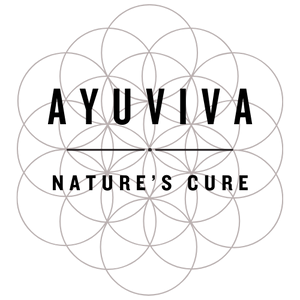Understanding Ayurveda: The Basics for a Healthy and Harmonious Life
Ayurveda , the "science of life", is a health system that is over 5,000 years old and has its roots in India. It goes far beyond a pure healing art: Ayurveda is a lifestyle that aims to bring body, mind and soul into harmony. In our modern, hectic world, where stress and imbalance are omnipresent, Ayurveda offers a holistic approach to staying healthy and happy in the long term.
What is Ayurveda?
Ayurveda is based on the understanding that every person is unique and has different needs to stay in balance. This uniqueness is determined by the so-called doshas – Vata , Pitta and Kapha . These three life energies determine all functions in the body and are the key to a healthy and balanced life.
The three doshas: Vata, Pitta and Kapha
-
Vata stands for movement and air. People with a dominant Vata dosha are often creative, flexible and agile. But when Vata gets out of balance, it can lead to anxiety, insomnia and digestive problems.
-
Pitta represents the element of fire. People with Pitta dominance are determined, intelligent and often very capable. However, an imbalance is manifested by anger, inflammation and digestive problems.
-
Kapha symbolizes earth and water. These dosha types are balanced, calm and reliable, but if they are unbalanced they can develop lethargy, weight gain and melancholy.
Why is it important to know your dosha?
Knowing your dosha helps you tailor your lifestyle, diet and daily habits to your individual needs. This Ayuviva dosha test can help you find out your predominant dosha and understand which foods and habits keep you in balance.
The 5 basic principles of Ayurveda:
- Holistic health : Ayurveda looks at the human being as a whole. Body, mind and soul must be brought into harmony to ensure health.
-
Prevention instead of cure : Ayurveda places great emphasis on prevention. Through daily routines and an appropriate diet, illnesses can be avoided from the outset.
-
Individual needs : There is no "one size fits all" solution. Every person is different and Ayurveda adapts healing methods and lifestyles to the individual.
-
Naturalness : The focus is on the use of natural remedies and procedures – from herbs and spices to breathing exercises and meditation.
-
Self-responsibility : Ayurveda promotes personal responsibility for one's own health and shows how one can actively improve one's life through diet, exercise and meditation.
How can you integrate Ayurveda into your life?
Integrating Ayurveda into your daily routine is easier than you think. Here are some simple steps you can start taking right away:
-
Morning routine : Start your day with a glass of warm water and a meditation or breathing exercise ( pranayama ) to calm your mind and activate your digestive system.
-
Diet according to your dosha : Choose foods that correspond to your dosha. Vata types should eat warming, grounding foods, while Pitta types should eat cooling foods and Kapha types should eat light, dry foods.
-
Mindful movement : Yoga and gentle movement promote the flow of energy in your body and support the balance of the doshas.
Your first step to a balanced life
Ayurveda is more than just a healing art - it is a way to appreciate life in all its facets and to live in harmony with nature. By knowing your doshas and aligning your life accordingly, you can stay healthy and balanced in the long term. Start with small, simple steps that you can easily integrate into your everyday life and discover the power of Ayurveda.
Are you ready to discover your dosha and bring more balance into your life? Find out which Ayurveda type you are with our free dosha test and receive personalized recommendations for your diet and lifestyle.





